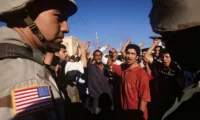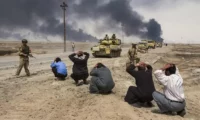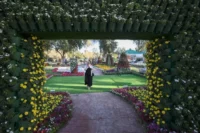
‘At my first meeting with Saddam Hussein, within 30 seconds, he knew two things about me,’ says FBI interrogator
Two decades ago, on March 19, 2003, President George W. Bush ordered the US invasion of Iraq. Bush and senior administration officials had repeatedly told Americans that Iraqi dictator Saddam Hussein was armed to the teeth with weapons of mass destruction and that he was in league with al Qaeda.
These claims resulted in most Americans believing that Saddam was involved in the September 11, 2001, attacks. A year after 9/11, two-thirds of Americans said that the Iraqi leader had helped the terrorists, according to Pew Research Center polling, even though there was not a shred of convincing evidence for this.… Seguir leyendo »



















